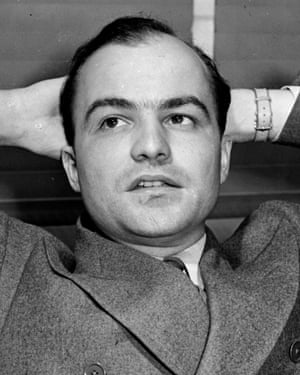It was a speech that electrified the world, one that coined a phrase that was to characterise the political era that followed the second world war. But its content could have been very different, reveals a document freshly unearthed by a historian researching the life of Winston Churchill.
On 5 March 1946 in Fulton, Missouri, before a huge crowd which included the US president, Harry Truman, Britain’s wartime leader issued a famous description of the political division that was opening across Europe between the Soviet-dominated Communist east and the western democracies. “From Stettin in the Baltic to Trieste in the Adriatic,” Churchill declared, “an iron curtain has descended across the continent.”
And yet in the months running up to its delivery, the man widely regarded as Britain’s greatest prime minister, whose bulldog spirit has often been invoked by anti-EU campaigners, toyed with using the speech to promote his vision of a United States of Europe.
An overlooked letter, buried in the archives of the New-York Historical Society, from journalist Walter Graebner to the publisher of Life magazine, Andrew Heiskell, reveals how Churchill thought Fulton might be the perfect location to talk not so much about the threat of communism but the future of a federal Europe.
Graebner had been dispatched to secure Churchill’s memoirs for his magazine and the five-page letter provides a fascinating detail of Churchill’s life in the post-war years.
It reveals that initially Life magazine’s owner, Time Life, had offered to buy three articles written by Churchill for £25,000 each, the combined equivalent of more than £3m in today’s money.
Graebner’s wooing of Churchill, who became prime minister exactly 80 years ago on Sunday, was a tortuous process conducted over many months at his suite in Claridge’s hotel in Mayfair, his Hyde Park mansion and Chartwell, his country home in Kent.
During early negotiations, Graebner records that Churchill would sit in bed wearing a Chinese dressing grown and smoking a cigar, which he kept relighting with a candle.
Key to Churchill agreeing to write for the magazine was its decision to purchase some of his paintings, which Graebner saw as giving his publisher the “inside track to his memoirs”.
Churchill gave Graebner one of the paintings – a “small harbour scene with lots of little boats painted in pleasant shades of blues greys and whites” – after the journalist admired it.
“They did have quite a warm relationship and Churchill could be a generous person,” said Professor Richard Toye, a historian at the University of Exeter who discovered the letter while researching his forthcoming book, Winston Churchill: A Life in the News.
“But you’ve got to remember that he’s cultivating a press contact. Time Life are going to be very generous towards him in terms of the amount of money they are going to pay for his memoirs. His instincts were certainly generous but he got an awful lot out of the deal.”
During discussions, Churchill enthused about Lawrence of Arabia – “what a commander he would have made in this war with me behind him” – and confided, to Graebner’s dismay, that he would have to cut criticism of Charles De Gaulle from his speeches.
Graebner noted that “Churchill can’t speak about Dunkirk without his eyes filling with tears” and writes in bed, staying up to midnight.
He learned that Churchill dictated to six secretaries working up to 16-hour shifts and could deliver 1,000 words while being driven from London to Chartwell. “One secretary told me it was hell to take down the dictation going round some of the Kentish curves,” Graebner writes.
“I remember at one point he began to discourse on the United States of Europe and asked me whether I thought this subject would be good for Fulton,” Graebner records.

“It’s a phrase very much associated with Churchill,” Toye said, “but it actually goes back to the 1860s when people like Victor Hugo were using that term.”
Instead Churchill decided to use Fulton to focus on the Soviet threat. “He understood the danger that the more brilliant phrases you throw in, the message becomes confused,” Toye said.
Graebner was a useful sounding board. “Having a day with Churchill was very often like being subjected to a series of trial speeches,” Toye explained. “And so if Graebner had said ‘that’s a fantastic idea’, then maybe that would have pushed him in that direction. Churchill was floating balloons. It was probably not so much a sign of indecisiveness – he took time to make his mind up – but it was a sign of his political antennae.”
For years, historians have wrestled with what Churchill would have thought about the European Union. With Europe celebrating the 75th anniversary of VE Day this weekend, many continue to argue that he would have been in favour. The fact that Churchill toyed with promoting the phrase in what is described as his most important post-war speech might give that impression.
But Toye said the truth was more nuanced. Churchill was cautious about deploying the phrase, which he had played around with since the 1930s, finally rolling it out in a lower-profile speech he delivered months later in Zurich. “He was in favour of European integration,” Toye agreed. “But with Britain smiling benevolently from the sidelines.”








